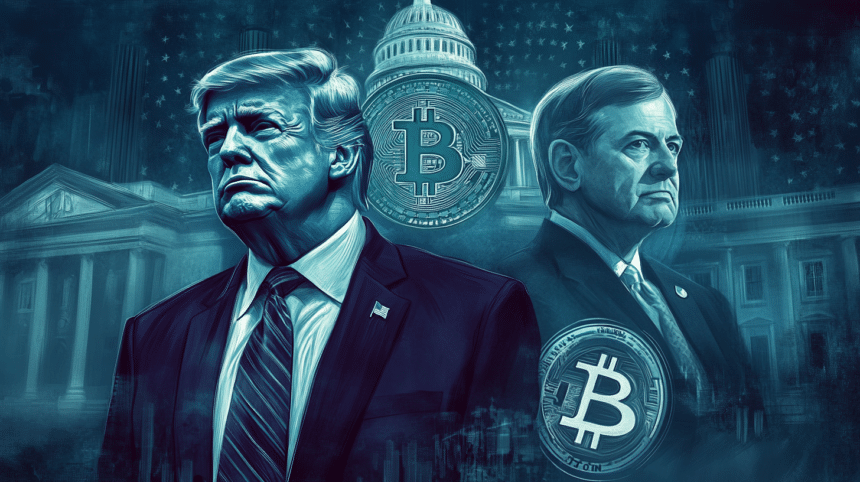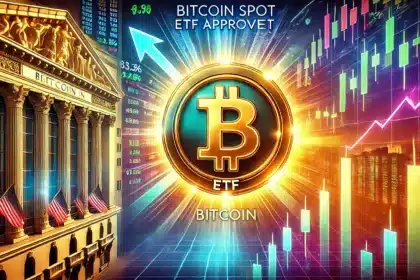President-elect Donald Trump’s nomination of Paul S. Atkins, a former commissioner of the U.S. Securities and Exchange Commission and now the CEO of Patomak Global Partners, to chair the SEC indicates a possible change may be coming to the agency’s regulatory philosophy, especially where the burgeoning cryptocurrency sector is involved. While Mr. Paul Atkins’ past record at the SEC and current leadership of a financial consulting firm suggest he will take a less aggressive stance toward businesses than the current administration.
A Shift in Regulatory Philosophy
Paul Atkins is renowned for taking a lenient approach to fiscal policy matters as well as advocating for more flexibility toward digital assets. His nomination denotes a break from Gary Gensler’s stringent regulatory tactics implemented as head of the SEC. Gensler’s term was marked by rigorous enforcement actions targeting crypto companies, such as allegations that some digital currency exchanges functioned as unregistered trading platforms, clearing facilities, and brokers.

In contrast, Atkins is anticipated to cultivate a regulatory environment conducive to invention within the digital asset sector. President-elect Trump hailed Atkins as a “proven leader” who “has faith in the potential of robust, innovative capital markets responsive to investor needs.” Trump emphasized that Atkins “recognizes that digital assets and other innovations are crucial to making America greater than ever before.”
Who Is Paul Atkins?
Paul S. Atkins served as a Securities and Exchange commissioner from 2002 until 2008 after being appointed by President George W. Bush. During his extensive tenure, he centered his efforts on strengthening corporate accountability, improving communication between shareholders and leadership, and reducing unnecessary obstacles preventing small and medium-sized businesses from fully engaging in capital markets.
Upon concluding his role at the SEC, Atkins launched Patomak Global Partners, a consultancy concentrating on financial services and regulatory adherence. Simultaneously, he co-headed the Token Alliance, a initiative under the auspices of the Chamber of Digital Commerce advocating for reasonable policymaking benefiting the flourishing digital asset sector.
Implications for the Cryptocurrency Industry
The cryptocurrency community greeted Paul Atkins’ nomination with jubilation, anticipating a change in the regulatory winds. Those at the helm of prominent digital asset enterprises foresee the SEC transitioning under Atkins’ stewardship to a nuanced methodology, potentially acquiescing additional digital asset exchange-traded funds and furnishing more lucid directives for crypto enterprises.
Michael Selig, a senior counsel for Willkie Farr & Gallagher, conveyed hope that Atkins would discourage the SEC’s proclivity to strategically leverage federal securities statutes as a deterrent against crypto startups. The suggestion is that under new leadership, the approach might move towards accommodation over confrontation. Only time will tell if such optimistic projections prove well-founded.
Market Reaction
Following Paul Atkins’ nomination, cryptocurrency exchanges erupted with activity as Bitcoin and other digital assets rocketed to new all-time high valuations. Investors were buoyed by optimism that Atkins might usher in a new era of regulatory open-mindedness toward innovation in the burgeoning digital asset space.

Confirmation Process and Future Outlook
Paul Atkins will face confirmation hearings in the Senate. If approved, he is primed to painstakingly pick apart and potentially overhaul numerous ambitious rules and enforcement manoeuvres enacted under Gensler’s administration. This could herald significant shifts in the SEC’s stances toward traditional financial realms and emerging sectors such as cryptocurrencies. Senator Tim Scott voiced hope that Atkins’ leadership would “breathe new life into U.S. capital markets” and foster, not frustrate, progress.
Final Words on SEC
The potential nomination of Paul S. Atkins as SEC chair implies a probable transition towards a more flexible normative outlook, specifically pertaining to electronic assets. His prolonged record in securities legislation and defence of modernization implies that, if affirmed, the SEC could formulate directives that reconcile shareholder safekeeping with the advancement of technological progress within the monetary industry.
Some industry analysts argue that a more pragmatic approach could stimulate innovation while still upholding essential protections, but sceptics worry certain rules may be relaxed too far. Regardless of which view proves more accurate, his nomination ensures significant debate regarding the future of Fintech and its relationship with regulators.
Stay tuned to The BIT Journal and keep an eye on Crypto’s updates. Follow us on Twitter and LinkedIn, and join our Telegram channel to be instantly informed about breaking news!






























